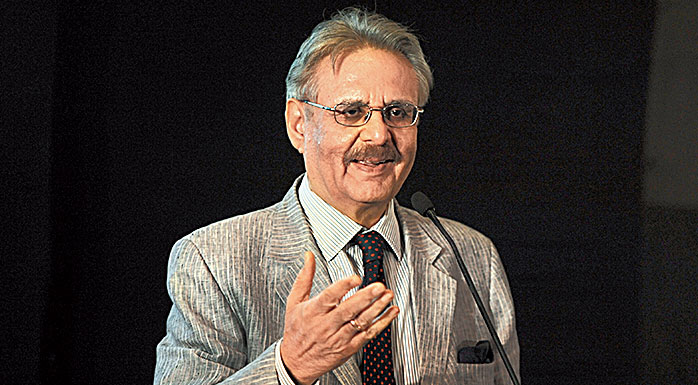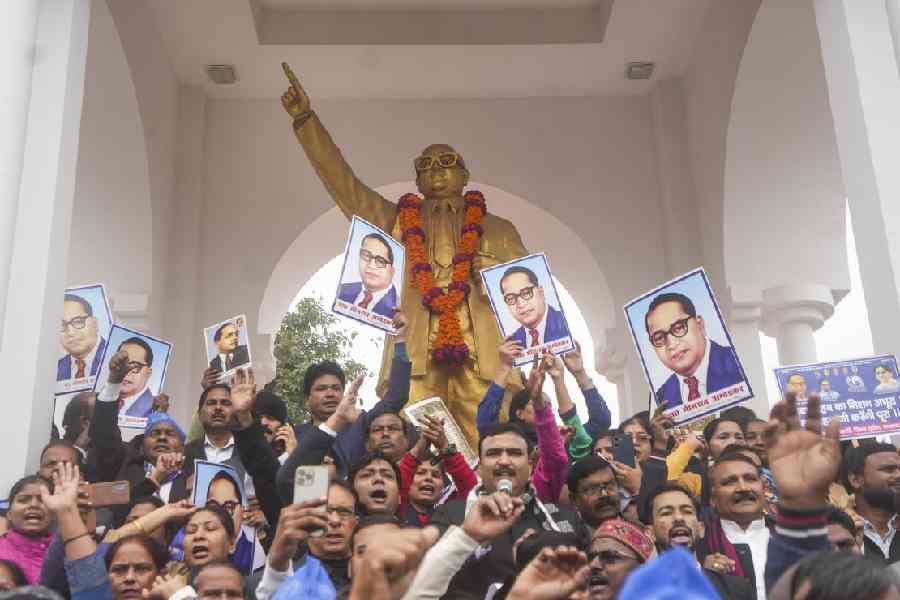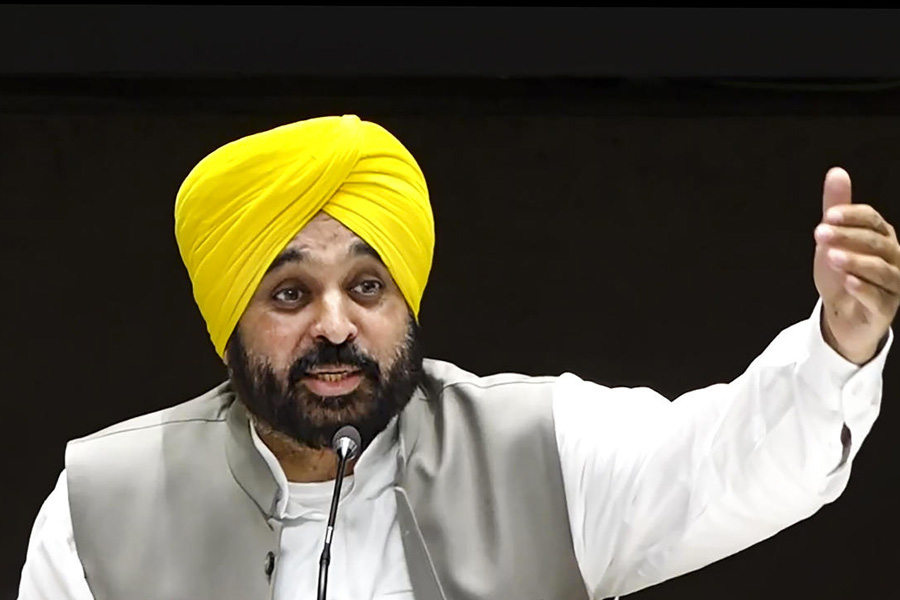Yogesh Chander Deveshwar, who turned tobacco major ITC Ltd into a conglomerate with a sprawl of businesses ranging from fast-moving consumer goods and hotels to foods and paper, and ran it like a fortified fief out of Virginia House on Chowringhee, passed away in Delhi this morning.
He was 72, and is survived by wife Bharti, son Gaurav and daughter Garima.
Fondly called ‘Yogi’ within his intimate circle, Deveshwar stayed for more than five decades with ITC of which over 20 years were spent as its executive chairman.
A domineering chieftain of Indian industry, he was a fierce champion of the precept that Indian managers knew best how to run their companies in this country. A strong-willed manager, he refused to kowtow to the top executives of London-based British American American Tobacco (BAT) which held a 34 per cent stake in ITC and regarded itself as the de facto parent of the cigarette maker.
Deveshwar chipped away at those anachronistic, neo-colonial notions of corporate governance at a time it was less fashionable to do so — and used his extraordinary powers of persuasion and influence over governments of all shades and stripes in order to build a bulwark of support from state-owned financial institutions that held substantial interests in the company.
“In this hour of profound grief and sorrow, we recall with respect and pride the legendary stewardship he provided to ITC over two decades as its chairman. Inspired by a patriotic fervour, manifest in his clarion call of ‘Lets Put India First’, he led ITC’s strategic thrust to create an exemplary Indian enterprise dedicated to serving national priorities,” ITC managing director Sanjiv Puri said in a condolence statement.
A mechanical engineer from IIT, Delhi, Deveshwar joined the company in 1968 — and still proudly wore his mantle as a hands-on manager when life ebbed out of his increasingly frail body at a private hospital in Gurgaon on Saturday.
The long association with ITC was interspersed by a stint at national carrier Air India as its chairman and managing director during 1991-94. Even after stepping down from the executive role on February 5, 2017, and handing over the day-to-day management to the next generation, he remained the guiding force behind ITC, navigating the company through a hostile environment, especially for cigarettes which still contributes nearly four-fifths of ITC’s profits.
Summing up Deveshwar’s contribution to ITC, in a regulatory filing seeking to appoint him as its non-executive chairman in June 2016, the company said its revenue grew tenfold to Rs 51,582 crore and profit before tax rose 33 times to Rs 14,958 crore after he took over as the executive chairman.
Long stint
Deveshwar once recounted his meteoric rise in the company: factory head at the age of 28, a division head by 31, and a director on the company’s board at the age of 37 — one of the youngest amongst his peers.
A day before he took over as chairman, the Centre slapped a retrospective excise duty demand on ITC for Rs 803 crore. Soon thereafter, a section of the old management were put behind bars for alleged violation of the Foreign Exchange Regulation Act. And to top it all, there was a battle for control of the company with BAT.
The excise duty dispute was finally resolved in 2005. The company managed to come out virtually unscathed from the raft of charges about Fera violations that had once swamped the company. The financial services and edible oil businesses were sold. But ITC strengthened the hotels and paper portfolio, merging them into the parent while taking on established players in foods and personal care.
The so-called battle with BAT, whichhad asked Deveshwar’s predecessor K.L. Chugh to step down, was also won with the backing of Indian financial institutions such as Life Insurance Corporation of India and UTI which held large stakes in ITC. BAT earned its dividend and remained a spectator to Deveshwar’s audacious diversification gambit and predatory attempts to take over hotel majors EIH and Leela.
Today, BAT appears to have recognised the value that Deveshwar created for ITC. In a statement to The Telegraph, Richard Burrows, chairman of BAT, said: “We are deeply saddened to learn of the passing of Y.C. Deveshwar. It is thanks to his leadership that today, ITC is one of India’s leading businesses. The thoughts of all at British American Tobacco are with his family at this time.”
Calcutta connection
ITC remained rooted to Bengal during Deveshwar’s tenure — the company is the largest contributor to the state exchequer by way of tax — and expanded base through large investments. It set up FMCG plants in the state, built two luxury hotels and expanded the base of ITC Infotech. It also promoted Indian arts and culture through the ITC Sangeet Research Academy.
Many industrialists recalled their long association with him. Sanjay Budhia of Patton remembered the Holi get-together at Fountain Court, the official residence of ITC chairman on Little Russel Street. Mayank Jalan, chairman of Keventer, described Deveshwar as his personal role model.
Y.C. Deveshwar made a strong contribution to Indian industry. His efforts helped ITC become a professionally-run Indian company with a global footprint. Saddened by his demise. My thoughts are with his family, friends and ITC group
NARENDRA MODI
Saddened at the passing away of Y. C. Deveshwar Ji. He was a giant in the corporate world. I have many memories of him as a distinguished captain of industry. Condolences to his family, his colleagues and his admirers
MAMATA BANERJEE
Saddened by the death of Yogi C. Deveshwar. Yogi excelled as a corporate professional and an entrepreneur and took his company to great heights. May God render peace to the departed soul & give to his family strength to bear this loss
ARUN JAITLEY











